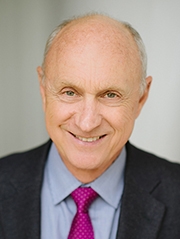Healthcare enterprises have discovered that their survival depends on their ability to meet their local communities on their own terms. Nowhere is this prospect more challenging than working with a large conservative religious community that has rejected assimilation into mainstream American culture and shuns health insurance—private or public—as well as preventive health care.

WellSpan Ephrata Community Hospital., which sits in the heart of Lancaster County, Pennsylvania, is one organization that has confronted this challenge and identified effective solutions. Hospital leadership understood that serving the roughly 40,000 Old Order Amish and conservative Mennonites (broadly called the Plain community) living in the region required a new way of looking at health care.
To connect with the multiple congregations of Amish and conservative Mennonites, WellSpan Ephrata Community Hospital had to fundamentally rethink everything from its pricing strategy to its physical facilities to how it communicated its service offerings. The result was a new Plain Community program at the hospital, which became so successful that WellSpan expanded it from Ephrata to its entire south-central Pennsylvania service area. The program now has dedicated staff at all six of WellSpan’s hospitals and more than 140 patient-care locations across the region.
A Tailored Approach to Payment
The Plain Community is “off the grid” both for public and private health insurance. Individual members of these communities are financially responsible for their own health care, with their congregations chipping in through mutual aid/alms arrangements when the bill exceeds the family’s resources. Plain Community members will travel, sometimes as far away as Mexico, to find care they can afford.
To meet this challenge, WellSpan developed significantly discounted bundled pricing for the cash-paying Plain community members. The number of WellSpan services for which cash-only bundles applied eventually grew to more than 150. For care delivered outside the bundles, WellSpan offers a cash-payment discount off its billed charges, provided the bills are paid within 30 days. This discount is greater than what the hospital makes available for other self-pay patients, and is predicated on an understanding that the Church will ensure full payment to the health system.
Cultural Barriers
Addressing the Plain Community’s healthcare needs presented significant cultural challenges, especially obstacles around communication. Although all Plain Community members speak English, they are most comfortable speaking Pennsylvania Dutch, a variant of German. Health literacy is also a challenge, because formal education for Plain Community members ends at 8th grade, and there is little-to-no focus on science, health, and anatomy.
Plain Community members tend to pursue alternative or complementary medicine, including chiropractic care and herbal remedies, until it is clear these approaches are not solving the problem. This tendency sometimes causes members of the community to delay seeking traditional medical care until the last minute. And when they visit a healthcare provider, they often bring extended family along for support.
Recognizing these challenges, WellSpan decided to dedicate full-time staff to serve Plain Community members. The hospital appointed a director of Plain Community relationships to build the program and conduct outreach into the individual congregations. It also added navigators who speak the language to assist Plain Community members in using the care system.
Plain Community navigators distribute special identity cards throughout the Plain Community congregations so that members can identify themselves when they are in a WellSpan facility, and staff can quickly determine that they qualify for the bundles and discounts. They also have reached out to the deacons of the various congregations to open channels of communication about how to make services more accessible and culturally sensitive.
One tangible example of the fruits of this outreach has been the addition of horse shelters and hitching posts at many WellSpan care locations in Lancaster and Lebanon counties, where most of these patients live.
Community Response
The ROI for these programs has been impressive—both financially and in terms of population health. From 2012 to 2018, hospital revenues from serving the Plain community have more than doubled, to $33 million annually. In just two years, the number of Plain Community members enrolled as patients by WellSpan’s large medical group, grew by 29 percent, to more than 7,400 active patients.
And as word has spread, Plain Community members have begun traveling from as far away as Wyoming, Wisconsin, and South Carolina to receive care in central Pennsylvania. And among the local population, Plain Community members are now receiving high-quality, responsive care that they may not have otherwise received—close to where they live.
Lessons for Other Provider Organizations
WellSpan’s experience offers many lessons for the rest of the care system. Although the Affordable Care Act (ACA) reduced the number of uninsured in the United States, nearly 30 million people remain uninsured—with neither private nor public health insurance. Some 12 million were exempted from the ACA’s now-repealed individual mandate for reasons similar to those of the Plain Community—either financial hardship or religious objections.
WellSpan has identified and alleviated both linguistic and cultural barriers to access for a large portion of this population and has addressed the affordability question frontally with package pricing and significant discounts. These efforts have paid big dividends, for the health system and—most important—for its patients.





